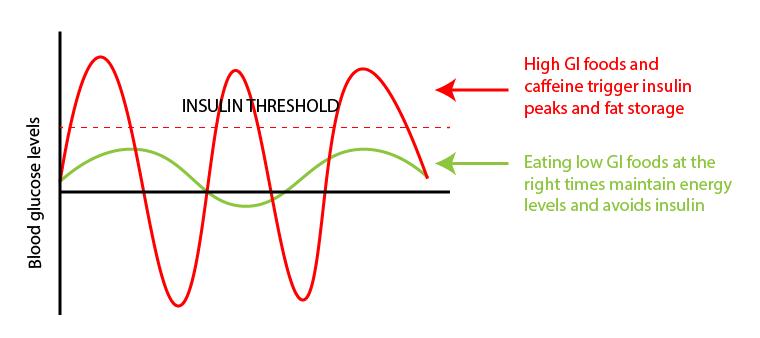Brain Health/Cognitive Decline
‘You are the architect of your future brain’
~ Dr David Perlmutter
Cognitive decline as we age is common, but not inevitable. In our society, we have started to accept conditions – such as Alzheimer’s – as a natural part of the ageing process, however it doesn’t have to be this way.
Research tells us that cognitive decline doesn’t just happen. Instead, it builds up over a long period of time, even before symptoms start to show. The buildup can be due to a number of factors, with diet and lifestyle playing a huge part.
From a Functional Medicine Perspective, this is great news, as it means that much can be done from a preventative perspective by making appropriate adaptations to diet and lifestyle.
In an ideal world, we would be taking care of our brain health with the right foods from the time we are born, but so often this isn’t how things work out. However, in the majority of cases, if we begin to make adjustments in early mid-life, we can prevent the onset of cognitive decline. This is particularly crucial if symptoms of stress and burnout are present.
Even in situations where Alzheimer’s is quite progressed, there is still a lot that can done. It may surprise you to learn that Alzheimer’s is actually the leading cause of death in the UK and so it is particularly encouraging to draw on more natural approaches to help turn things around.
‘People can reduce their risk of dementia by getting regular exercise, not smoking, avoiding harmful use of alcohol, controlling their weight, eating a healthy diet, and maintaining healthy blood pressure, cholesterol and blood sugar levels’
~ World Health Organisation, 2019
How can I help?
From a Functional Medicine perspective, you can book a one-to-one consultation to come and explore any areas of concern you have.
We would start by looking into any genetic links with dementia or Alzheimer’s within your family to ascertain how susceptible you are. Following this, we can create a tailored programme of support that aims to prevent the development of cognitive decline.
As with all of the support I offer, real change requires you to take responsibility and make the appropriate changes. It may involve giving up some of the foods you enjoy – which can be difficult – however the benefits are certainly worth the short-term cravings.
There are also specific tests we can perform to look more deeply at what’s going on. I can recommend what is more beneficial after the first consultation.
Health Conditions
Brain Health Programme
I also run a six-week Brain Health Programme at my clinic in Macclesfield. This programme is a comprehensive look at all areas of brain health and will explore sleep, stress, gut, digestion, exercise and keeping the brain active.
I call this programme a General MOT, as it covers a broad scope of health and wellness that relates to the brain from a Functional Medicine Perspective.
Contact me for details of the next Brain Health Programme.
Things you can do at home:
- Eat brain boosting foods:
- Blueberries and berries. Eating antioxidant containing blueberries has been shown to improve brain health, prevent age-related neurodegenerative diseases and Improve cognitive functions so be sure to add them to smoothies or breakfast as often as you can. If you can buy organic, then even better;
- Fatty Fish. Oily fish including Salmon, trout, mackerel, sardines and anchovies all contain Omega-3 fatty acids which helps to build brain and nerve cells. Your brain is 60% fat, with half of that being Omega-3.
- Turmeric. This spice is a potent antioxidant which can cross the blood brain barrier to directly enter and benefit brain cells.
- Dark Chocolate. Flavonoids in dark chocolate have antioxidant effects which may counteract and protect against cognitive decline.
- Gut health. Gut health is crucial for effective digestion. If you’re not absorbing nutrients, they will not reach your brain, meaning that brain function is compromised. Take a look at my Gut Health page on this website for further information on this topic;
- Drink water. Your brain is 80% water and so even mild dehydration of a 3%- 4% decrease in water can instigate neurological issues like brain fog, mood swings and fatigue which may contribute to more serious brain problems.
- Exercise. Exercise is really important as it helps to support the body, and of course there are benefits to our mood when we move our bodies. What’s more, if we exercise outside then we have the added benefit of sunlight, which boosts our vitamin D levels;
- Get enough sleep. The big area is sleep for brain health. Sleep acts as a self-cleaning mechanism for the brain, it clears out toxins during sleep. When we don’t sleep well, this increases risk of brain issues;
- Relaxation. High levels of chronic stress can kill brain cells. This builds up over time you and you can lose your capacity to respond to and overcome whatever is going on in your life. You eat more carbs because you’re tired and then blood sugar goes awry. Learning to relax and managing stress is crucial for your brain health. Try and become calmer in your yourself, and do things that help you to relax, whether that’s a walk in nature, or washing the car. Whatever helps you!
Blood Sugar Balancing
Blood sugar is also a huge topic and I’ve provided some detailed information here with guidance on how to balance your blood sugar levels.
When you eat starchy/sweet foods or alcohol they are broken down in the body into a sugar called glucose. This is carried around in the blood stream and taken to cells which use it for energy. At any one time, the ideal amount of glucose to have in the blood is about two teaspoons.
The level of glucose in the blood is carefully controlled by a hormone called insulin. After we eat, the amount of glucose in the blood rises. Insulin is released to bring blood glucose levels back down to 'normal' levels. This ultimately causes blood sugar levels to swing too low again, making us feel tired, grumpy and hungry again. This is sometimes referred to as the blood sugar rollercoaster.
It is the hormone insulin that makes you fat and keeps you fat. The more insulin you produce, the fatter you become. What increases insulin levels? Prolonged intake of high GI foods. These are processed, starchy and sweet foods which release their glucose into the blood stream quickly, causing excess production of insulin. This excess load triggers bodily systems to convert surplus glucose into fat. You then eat again and so continue to store fat as opposed to burning it.
The problem is that if this happens too frequently, the body starts to ignore the insulin message, a condition called insulin resistance. This can lead to permanently high blood sugar levels as cells become resistant to Insulin and deprived of energy. This further increases weight gain can eventually lead to type 2 diabetes and a greater risk of heart disease, cancer, alzheimer's disease and strokes.

Tips for balancing blood sugar
- Timing of meals. When you eat is as important as what you eat. To balance blood sugar levels, eat three well balanced main meals a day;
- GI ratings. Carbohydrates with a GI over 70 are usually considered to be High GI and are best avoided. Those with a rating under 50-55 are considered Low GI and should make up about a ¼ of your plate. Those in between can be eaten in occasionally in place of low GI foods. For a full list click the link in the resources section below;
- Hidden Sugars in Drinks. Avoid all fizzy drinks, squashes and fruit drinks as they contain high levels of sugar;
- Protein Power. Protein slows glucose release from carbohydrates so try to include some at each meal. The best protein choices are: Skinless organic chicken or turkey, fish, eggs, live low-fat natural yogurt, raw nuts, seeds, quinoa, beans and lentils, tofu & tempeh, goats cheese and cottage cheese. Red meat can be consumed in moderation;
- Stimulants. Coffee, tea, energy drinks and alcohol disrupt blood sugar levels and are best avoided or at least reduced.
Further reading and useful resources
Harvard Health list of foods linked to better brainpower:
Research paper published by Dr Bredesen demonstrating reversal of cognitive decline:
Harvard Health list of foods linked to better brainpower:
Research paper published by Dr Bredesen demonstrating reversal of cognitive decline:
The End of Alzheimers: The first programme to prevent and reverse the cognitive decline of dementia:
Link to interview with Dale Bredesen discussing the prevention and reversal of Alzheimers disease:
Institute for Functional Medicine information & video with Dr Robert Rountree on Reversing Cognitive Decline: Midlife strategies for brain health:
Dr David Perlmutter, Neurologist: 20 foods to naturally increase your brain power:
Huffington Post article: What sugar does to your brain:
List of GI Foods & ratings:
References
Mishra, S. Palanivelu, K. The effect of curcumin (turmeric) on Alzheimer’s disease: an overview, Ann Indian Acad Neurol. 2008 Jan-Mar, 11 (1):13-19.
Socci, V. Tempesta, D. Desideri, G. Enhancing human cognition with cocoa flavoniods, Front Nutr, 2017 May 16;4:19.
Subash, S. Mohamed, M. Akbar, M. Neuroprotective effects of berry fruits on neurodegenerative diseases, Neural Regen Res 2014 Aug 15;9 (16): 1557-1566.
Eysoczanski, T. Solo;a-Wysoczanska, E. Pekala, J. Omega-3 Fatty Acids and their role in central nervous system – a review, Curr Med Chem 2016; 23 (8): 816-831.





